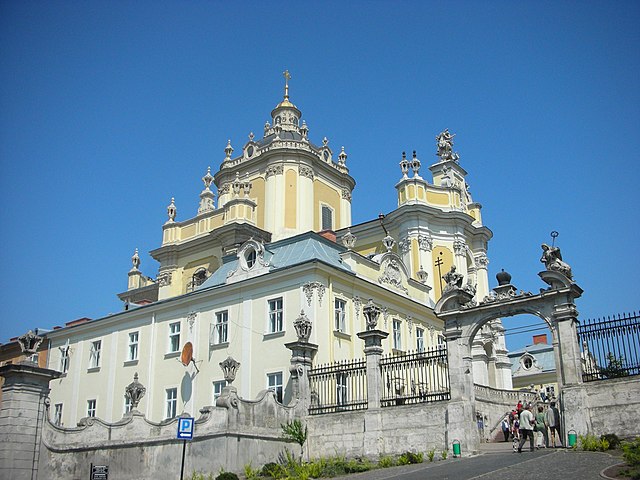Canon law is a set of ordinances and regulations made by ecclesiastical authority for the government of a Christian organization or church and its members. It is the internal ecclesiastical law, or operational policy, governing the Catholic Church, the Eastern Orthodox and Oriental Orthodox churches, and the individual national churches within the Anglican Communion. The way that such church law is legislated, interpreted and at times adjudicated varies widely among these four bodies of churches. In all three traditions, a canon was originally a rule adopted by a church council; these canons formed the foundation of canon law.
Image of pages from the Decretum of Burchard of Worms, an 11th-century book of canon law
Eastern Catholic Churches
The Eastern Catholic Churches or Oriental Catholic Churches, also called the Eastern-Rite Catholic Churches, Eastern Rite Catholicism, or simply the Eastern Churches, are 23 Eastern Christian autonomous particular churches of the Catholic Church, in full communion with the Pope in Rome. Although they are distinct theologically, liturgically, and historically from the Latin Church, they are all in full communion with it and with each other. Eastern Catholics are a distinct minority within the Catholic Church; of the 1.3 billion Catholics in communion with the Pope, approximately 18 million are members of the eastern churches.
Image: Lviv Cathedral of Saint George 01
Image: DPP 017 by Joseph Lazer
Image: Melkite Greek Catholic Church, Damascus, Syria
Image: St. Marys Cathedral Trivandrum Fassade 2 (retuschiert)





